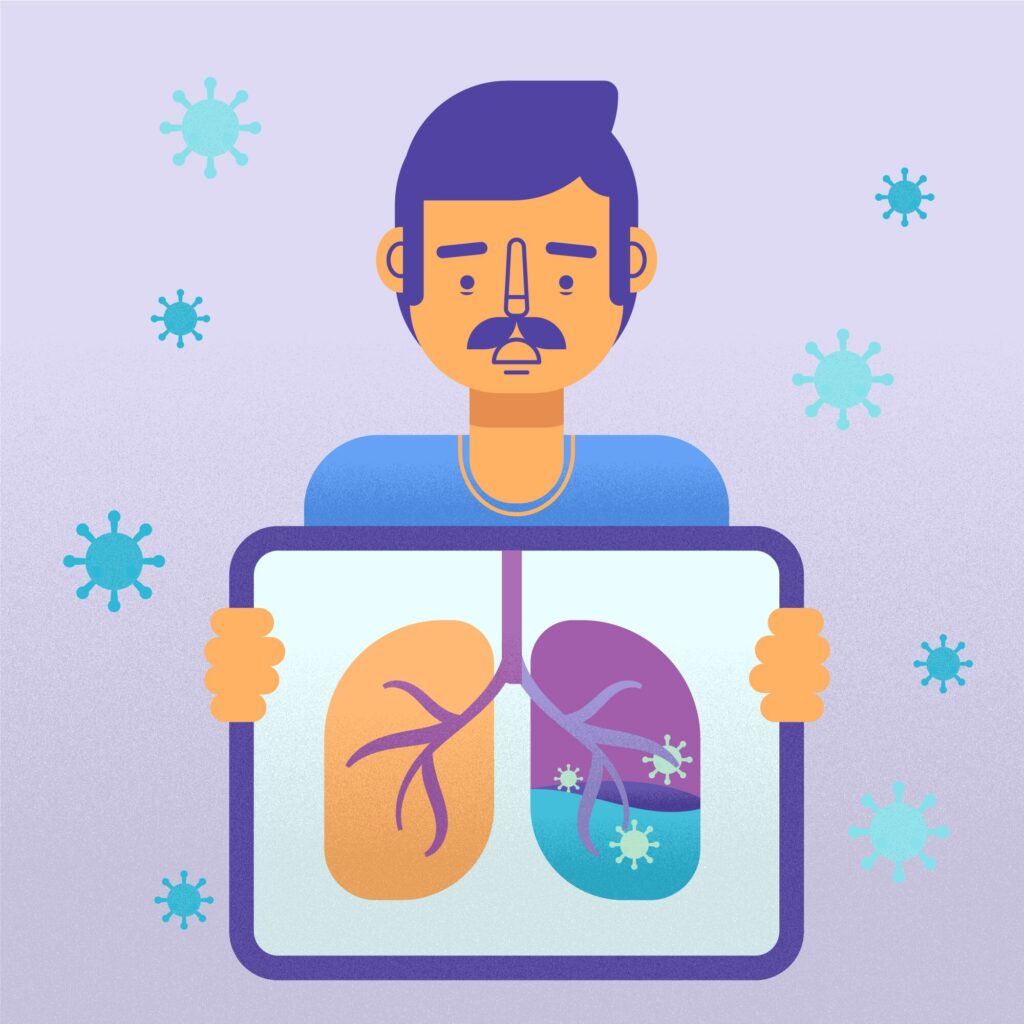The lungs are vital for life, playing a crucial role in oxygenating our blood and expelling carbon
dioxide. In today’s world, however, air pollution, smoking, and exposure to harmful chemicals
can compromise lung health. Fortunately, the lungs have a natural ability to heal and cleanse
themselves, but we can aid this process by adopting specific practices. If you’re looking to give
your lungs a fresh start, then dive into the
Top five ways to detox lungs
- Why is Lung Detoxification Important?
Lung detoxification removes toxins and pollutants accumulated over time, improving respiratory
efficiency and overall health. It’s particularly beneficial for individuals exposed to polluted
environments, smokers, or those with respiratory conditions like asthma or chronic bronchitis. - What Are the Best Tips to Detox Lungs?
Tip 1: Practice Breathing Exercises
How do breathing exercises help detoxify the lungs?
Breathing exercises enhance lung capacity and help expel stale air and toxins. They stimulate
deeper oxygen exchange, improving the lungs’ ability to purify themselves.
Recommended Practices: - Diaphragmatic Breathing:
Focus on using the diaphragm to breathe deeply. Lie flat, place a hand on your stomach, and
inhale deeply through your nose. Your stomach should rise as your diaphragm expands. Exhale
slowly through your mouth. - Pursed-Lip Breathing:
Inhale through your nose and exhale slowly through pursed lips, as if blowing out a candle.
This technique improves oxygen flow and prevents air from being trapped in the lungs. - Pranayama (Yoga Breathing):
Techniques like Anulom Vilom (alternate nostril breathing) balance oxygen intake and promote
relaxation, aiding lung detox.
How often should you practice breathing exercises?
-Dedicate 10–20 minutes daily for noticeable improvement in lung health.
Tip 2: Stay Hydrated
1.Why is hydration essential for lung detoxification?
-Water is vital for thinning mucus in the lungs, making it easier to expel harmful particles and
bacteria. Proper hydration keeps the respiratory system lubricated and functioning efficiently.
2.What should you drink for lung health?
- Warm Water: Enhances mucus flow and soothes the respiratory tract.
- Herbal Teas: Options like ginger, turmeric, and licorice root tea have anti-inflammatory and
detoxifying properties. - Citrus Juices: Rich in vitamin C, they combat oxidative stress and boost the immune system.
3.What are the hydration recommendations?
-Aim for 8–10 glasses of water daily. Increase intake if you live in a polluted area or experience
respiratory distress.
Tip 3: Eat Lung-Cleansing Foods
1.Which foods support lung detox?
- Certain foods are naturally cleansing and promote lung health. Incorporate these into
your diet:
- Leafy Greens: Spinach, kale, and coriander are rich in antioxidants that protect the lungs
from damage. - Garlic and Onions: These contain allicin, which reduces inflammation and fights lung
infections. - Citrus Fruits: Oranges, lemons, and grapefruits are loaded with vitamin C, aiding toxin
removal. Even berries such as Blueberries, strawberries, and raspberries. - Nuts and Seeds: (Walnuts, Almonds, etc) Rich in omega-3 fatty acids, they reduce lung
inflammation. - Spices: Turmeric and ginger have powerful anti-inflammatory properties.
6.Cruciferous Vegetables: Broccoli, cauliflower, Brussels sprouts, and cabbage. Contain
sulforaphane, a compound known to enhance the body’s detoxification enzymes and remove
harmful toxins from the lungs. - What are foods to avoid?
- Limit dairy products, processed foods, and high-sodium meals, which can increase
mucus production and inflammation.
Tip 4: Incorporate Regular Exercise
1.How does exercise detoxify the lungs?
-Physical activity increases heart rate and breathing, promoting better oxygen exchange and
removal of carbon dioxide. It strengthens respiratory muscles, making the lungs more efficient.
What types of exercise are best?
- Cardiovascular Workouts: Activities like running, swimming, or brisk walking enhance lung
capacity. - Aerobic Exercise: Helps oxygenate the blood and eliminate toxins.
- Yoga: Combines deep breathing with physical postures for overall lung rejuvenation.
2.How much exercise is recommended for lung detox?
-Engage in moderate-intensity exercise for at least 150 minutes per week, or 30 minutes daily.
Tip 5: Reduce Exposure to Toxins
How do environmental toxins affect lung health?
-Exposure to pollutants like cigarette smoke, industrial fumes, and airborne particles can
accumulate in the lungs, impairing their function and leading to chronic diseases.
What steps can you take to reduce exposure?
- Quit Smoking: Smoking introduces harmful chemicals into the lungs, increasing the risk of
respiratory illnesses. - Use Air Purifiers: Invest in HEPA air purifiers to minimize indoor pollutants.
- Avoid Strong Chemicals: Opt for natural cleaning products to reduce inhalation of toxic fumes.
- Wear Masks in Polluted Areas: Use N95 masks to filter out particulate matter in heavily
polluted environments. - Can Herbal Remedies Help Detox the Lungs?
Yes, certain herbs support lung health and detoxification. Popular options include:
- Mullein: Clears mucus and soothes the respiratory tract.
- Peppermint: Contains menthol, which relaxes airway muscles.
- Eucalyptus: Its vapors reduce congestion and support breathing.
Consider using these herbs in teas, steams, or aromatherapy.
How Does Sleep Impact Lung Health?
Quality sleep is essential for lung repair. During sleep, the body repairs damaged tissues and
eliminates toxins. Aim for 7–9 hours of restful sleep daily to support overall detoxification.
Tips for Better Sleep:
- Use a humidifier to keep airways moist.
- Sleep with an elevated head position to ease breathing.
- Avoid caffeine and heavy meals before bedtime.
- Is Detox Lungs Safe for Everyone?
Lung detox methods are generally safe, but individuals with severe respiratory conditions should
consult a doctor before making significant changes. Pregnant women and people with chronic
illnesses should also seek medical advice. - How Long Does It Take to Detox Lungs?
The time required depends on factors like lifestyle, level of exposure to toxins, and consistency
with detox practices. Visible improvements can often be seen within a few weeks of adopting
these methods. - What Are the Benefits of Lung Detox?
A regular lung detox can result in:
- Improved breathing and oxygen exchange.
- Reduced risk of respiratory infections.
- Enhanced stamina and energy levels.
- Lower inflammation and mucus buildup.
Caring for your lungs is essential to maintaining a healthy, active lifestyle. By practicing
breathing exercises, staying hydrated, eating lung-friendly foods, exercising regularly, and
avoiding toxins, you can keep your lungs clean and functional. These steps not only detoxify
your lungs but also empower your overall well-being. So take a deep breath, and start your
journey to healthier lungs today!

